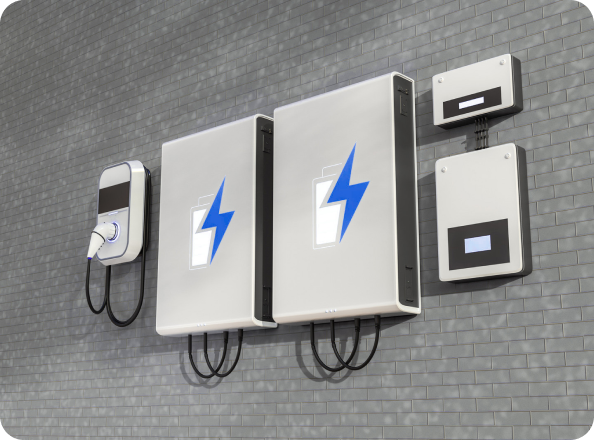Solar for Homeowners
Solar is vital for homeowners as it provides renewable energy, cuts electricity costs, and reduces dependence on traditional utilities, offering both environmental and financial benefits.

Why Going Solar is a Good Idea for Households in 2025?

Say goodbye to high energy bills
Solar energy can significantly reduce or even eliminate your monthly electricity bills, giving you long-term savings on energy costs.

Financial incentives at your fingertips
With government incentives like tax credits and rebates, solar installations become more affordable, helping you recoup your initial investment costs.

Embrace energy independence
By harnessing the power of solar panels, households can generate their own electricity, reducing reliance on traditional utility providers and protecting against rising energy prices.

Stay powered during outages
Solar energy systems with battery storage can provide backup power during grid outages, ensuring uninterrupted electricity supply and enhancing your resilience against emergencies.

Boost your home’s value
Installing solar panels can enhance the value of your home, making it more attractive to potential buyers and giving you a competitive edge in the real estate market.

Take advantage of future technologies
Ongoing advancements in solar technology have made panels more efficient and durable than ever before. You can trust that solar power is reliable and cost-effective.

Be a part of the solution
By investing in solar power, households contribute to the transition to a sustainable energy future. You’ll be promoting cleaner air and a healthier environment for everyone in your community.
Going Solar Step-by-Step
Research
Dive into the world of solar energy, exploring its fundamentals and perks. Get acquainted with local regulations, incentives, and reputable solar installers nearby.
Property Assessment
Use our calculator to evaluate your property’s solar potential by considering factors like roof space, orientation, shading, and local weather conditions.
Energy Audit
Take stock of your current energy usage and potential solar savings through an energy audit. This guides you in sizing your solar system appropriately.
Financial Planning
Determine your budget and explore financing options such as cash purchases, solar loans, leases, or power purchase agreements (PPAs). Research available incentives, rebates, and tax credits at federal, state, and local levels.
Choose a Solar Installer
Select a certified and experienced solar installer with a solid track record in your area. Ensure they’re licensed, bonded, and insured.
Design and Permitting
Receive a tailor-made solar system design for your property. Obtain necessary permits from your local building department.
Sign Paperwork
Sign interconnection paperwork apart from signing off on designs that will be submitted to the DOB for permits.
Installation
Schedule the installation of your solar panels, based on your professionally engineered solar design.
Inspection and Interconnection
Your local building department will inspect the system post-installation to verify compliance. Once approved, your installer will arrange interconnection with your utility company.
Activation and Monitoring
Once interconnected, your solar system begins generating electricity. Stay in the loop with regular performance monitoring via software provided by your installer.
Enjoy the Benefits
Celebrate your newfound independence from unpredictable utility rates and embrace the advantages of clean, renewable energy. Enjoy reduced electricity costs for years to come. We encourage you to share your solar journey and inspire your community to transition to solar power!
Solar Panels
Breaking Down Solar Misconceptions

Myth
Solar panels need tons of maintenance

Fact
Solar panels are low-maintenance superheroes. They just sit there, collecting sunlight! Occasional rain does most of the cleaning.
Think solar panels are hard to maintain? Learn why that’s a myth in our guide!










 Talesun Solar Co.
Talesun Solar Co. 
























